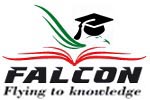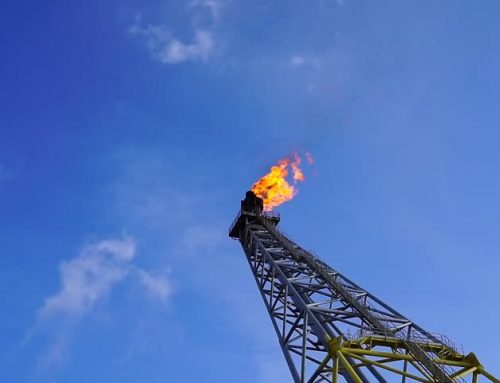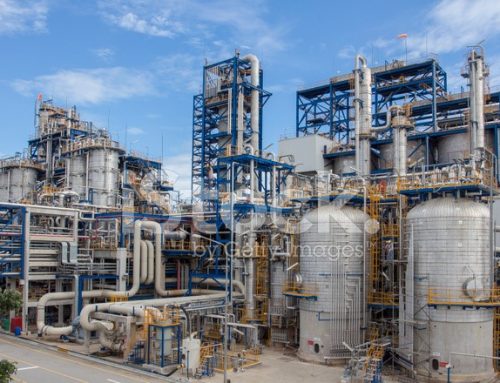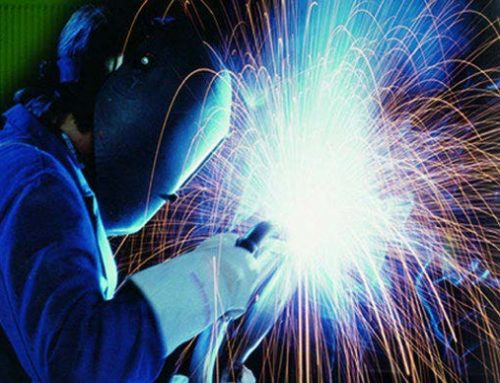Project Description
Why attend
This ten (10) days course for Combined Cycle Power Plant (CCPP) Operation Gas Turbine discusses the advancement in the areas of design, fabrication, installation, operation, and maintenance of gas turbines. This course was prepared to better answer today’s problems in the design, fabrication, installation, operation, and maintenance of gas turbines. This course has addressed most of the new developments and maintenance practices, in areas such as lubrication and controls for gas turbines over the past four years.
The use of gas turbines in the petrochemical, power generation, and offshore industries has mushroomed in the past few years. The power industry in the past 10 years has embraced the combined cycle power plants, and the new high-efficiency gas turbines are at the center of this growth segment of the industry. However, owing to the spiralling costs of natural gas, many of these plants designed for base load service have been cycled on a daily basis from part loads of 50% to full load, and in many cases, have had to be shutdown at weekends. The new maintenance chapters, with their case histories, should be of great assistance to the engineers in the field who have to operate their plant at other than design conditions of base loaded operation. Investigation into operation of these plants on other fuels is also covered in this edition.
Understanding gas turbine performance is of paramount importance, particularly in a deregulated market in order to minimize life cycle costs. Much of this can be elegantly illustrated by using simulators. However, such simulators need to address not only engine performance (including power augmentation and enhancement) but must also include deterioration, emission, turbine creep life usage, controls and life cycle cost analysis.
GPAL Single and two Shaft Gas Turbine simulators achieve all of this and they are probably the first of its kind. In Version 2, we have integrated the simulation of Turbine Inlet Cooling (TIC). Two TIC technologies are included – evaporative cooling (using wetted media and fogging) and chillers. As a consequence, the effects of humidity on engine performance and particularly on gas turbine emissions is now included. The outputs from the turbine inlet cooling simulation can be scaled to any gas turbine and it is therefore a powerful tool to investigate the suitability of turbine inlet cooling for any gas turbine for a particular site.
This ten (10) days course is class room based and focusses on the core principles of CCGT plant operation, including:
Overview of CCPP and CHP installations.
Legislation and environmental factors.
Thermodynamics for Combined Cycles.
Resume of Gas Turbines and other prime movers.
Heat recovery boilers design and construction.
Auxiliary boilers design and construction.
Feed systems.
Steam Turbine Plant.
Condensers and cooling systems.
Water treatment/chemical control.
Combustion theory.
Resume of electrical theory and alternators.
Aspects of Power Plant efficiency.
Instrumentation and control.
Operation of units of modular layout.
Safety, plant care and fire systems.
.
Course Objectives
By the end of the course, participants will be able to:
o Get the knowledge and understanding of the CCPP and CHP installations
o Learn the Legislation and environmental factors of CCGT and their emission
o Understand the Thermodynamic Principles of the Combined-Cycle Plant and the Gas Laws
o Get the knowledge of the Combined-Cycle Concepts and Combustion theory
o Learn the main Components, Control and Automation, Instrumentation and control of the CCGT
o Learn the Condensers and cooling systems and Water treatment/chemical control
o Examine the Operating and Part Load Behaviour of Combined-cycle gas & steam turbine power plants
o Learn and understand the Aspects of Power Plant efficiency
o Apply and get the knowledge of Safety, plant care and fire systems
o Learn about the reliability, life cycle cost, and profitability, refurbishment, and life extension methods for all types of combined cycle power plants
Who should attend
This course is designed for control room operators who wish to improve their skills operating a combined cycle power plant under a variety of normal and abnormal operating conditions, as well as assistant operators who are preparing to assume responsibilities for unit operation
Course Outline
- An Overview of Gas Turbines
Gas Turbine Cycle in the Combined Cycle or Cogeneration Mode ● Gas Turbine Performance ● Gas Turbine Design Considerations ● Categories of Gas Turbines ● Major Gas Turbine Components ● Turbine Expander Section Materials ● Coatings ● Gas Turbine Heat Recovery ● Supplementary Firing of Heat Recovery Systems
Theoretical and Actual Cycle Analyses
The Brayton Cycle ● Regeneration Effect ● Increasing the Work Output of the Simple-Cycle Gas Turbine ● Actual Cycle Analysis ● Summation of Cycle Analysis ●
A General Overview of Combined-Cycle Plants ● Inlet Cooling Techniques ● Injection of Compressed Air, Steam, or Water for Increasing Power
Compressor and Turbine Performance Characteristics
Aerothermodynamics of Turbomachinery ● Aerothermal Equations ● Efficiencies
Compressor Performance Characteristics
Performance and Mechanical Standards
Major Variables for a Gas Turbine Application ● Performance Standards (ASME) ● Performance Test Code on Gas Turbines ● Mechanical Parameters ●
Application of the Mechanical Standards to the Gas Turbine
Major Components-Centrifugal Compressors
Centrifugal Compressor Components ● Centrifugal Compressor Performance ●
Compressor Surge ●Process Centrifugal Compressors
Major Components- Axial-Flow Compressors
Compressor Operation Characteristics ●
Compressor Choke ● Compressor Performance Parameters ● Performance Losses in an Axial-Flow Compressor ● New Developments in Axial-Flow Compressors ● Compressor Blade ● Material
Radial-Inflow Turbines
Hydraulic Radial-Inflow Turbines ● Radial-Inflow Turbines for Gas Applications ● Thermodynamic and Aerodynamic Theory ● Performance of a Radial-Inflow Turbine
Axial-Flow Turbines
Turbine Geometry ● Thermodynamic and Aerodynamic Theory ● Velocity Diagrams ● Impulse Turbine ● Turbine Blade Cooling Concepts ● Turbine Blade Cooling Design
Combustors
Gas Turbine Combustors ● Typical Combustor Arrangements ● Air-Pollution Problems in a Diffusion Combustor ● The Dry Low Emission Combustors ● Catalytic Combustion and Combustors
Materials, Fuel Technology, and Fuel Systems
General Metallurgical Behaviours in Gas Turbines ● Gas Turbine Materials ● Compressor Blades ● Forgings and Non-destructive Testing
Fuels
Fuel Specifications ● Fuel Properties ● Liquid Fuel Handling and Treatment ● Heavy Fuels ● Fuel Gas Handling and Treatment ● Cleaning of Turbine Components ● Fuel Economics ●
Heat Tracing of Piping Systems
Auxiliary Components and Accessories – Bearings and Seals
Bearings ● Bearing Design Principles
Bearing Materials ● Bearing and Shaft Instabilities ● Factors Affecting Thrust-Bearing Design ● Seals ● Mechanical (Face) Seals ● Mechanical Seal Selection and Application ● Seal Systems ● Associated Oil System ● Dry Gas Seals
Auxiliary Components and Accessories – Gears
Gear Types ● Factors Affecting Gear Design ● Manufacturing Processes
Gear Rating ● Gear Noise ● Installation and Initial Operation ● Gear Failures
Lubrication
Basic Oil System ● Lubrication Management Program ● Lubricant Selection ● Oil Contamination ● Filter Selection ● Cleaning and Flushing
Spectrum Analysis
Vibration Measurement ● Interpretation of Vibration Spectra ● Subsynchronous Vibration Analysis Using RTA ● Synchronous and Harmonic Spectra
Balancing
Rotor Imbalance ● Balancing Procedure ● Application of Balancing Techniques ●
User’s Guide for Multiplane Balancing
Couplings and Alignment
Gear Couplings ● Metal Diaphragm Couplings ● Metal Disc Couplings ● Turbomachinery Uprates ● Curvic Couplings ● Shaft Alignment
Control Systems and Instrumentation
Control Systems ● Condition Monitoring Systems ● Implementation of a Condition Monitoring System ● Life Cycle Costs
Temperature Measurement ● Pressure Measurement ● Vibration Measurement ● Auxiliary System Monitoring ● Failure Diagnostics ● Mechanical Problem Diagnostics
Gas Turbine Performance Test
Performance Codes ● Flow Straighteners ● Gas Turbine Test ● Performance Curves ● Performance Computations ● Gas Turbine Performance Calculations ● Correction Factors for Gas Turbines ● Vibration Measurement ● Emission Measurements ● Plant Losses
Maintenance Techniques
Philosophy of Maintenance ● Training of Personnel ● Tools and Shop Equipment ● Gas Turbine Start-up ● Redesign for Higher Machinery Reliability ● Long-Term Service Agreements ● Borescope Inspection ● Rejuvenation of Used Turbine Blades ● Rotor Dynamic System Characteristics ● Bearing Maintenance ●
Coupling Maintenance ● Repair and Rehabilitation of Turbomachinery Foundations
Case Histories
The workshop
This interactive training course includes the following training methodologies as presented on the next column based on percentage of the total tuition hours:
Lectures
Workshops & Work presentation
Case Studies & Practical Exercises
Videos, Sofware & General Discussion
The course instructor may modify the above training methodology before or during the course for technical reasons with no prior notice to participants.
Falcon Consulting Professionals is established in Greece for the last 15 years in the areas of technical consulting and professional training for the local industries. Falcon is expanding in GCC, aiming to provide the best consulting and training solutions to the industries of the region. Falcon’s instructors are accredited trainers and highly experienced in their fields, as well as adult training. We aspire to build our business relationships on mutual trust. The achievement of results with an emphasis on innovation and sustainability, quality, cost analysis and time scheduling are non-negotiable from the conceptual phase of the training.







